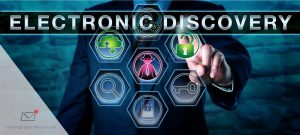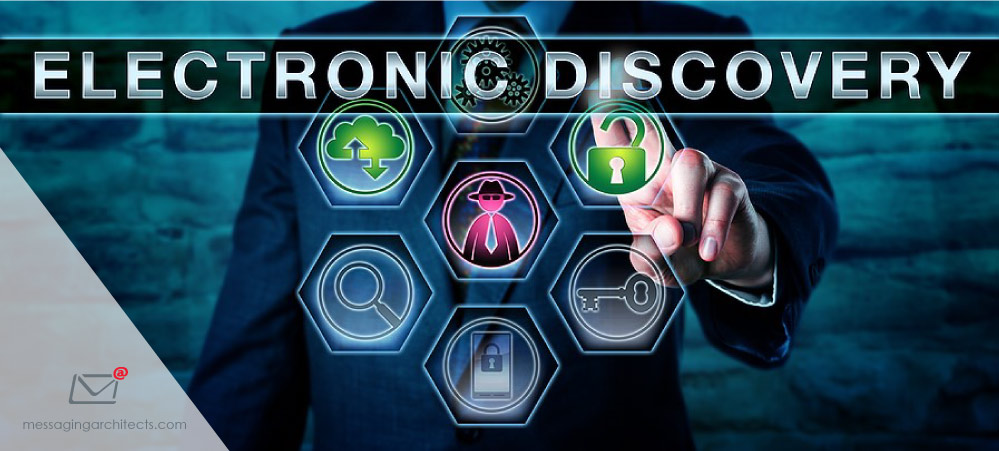Despite a perception that attorneys remain slow to adopt technology, law firms increasingly embrace eDiscovery solutions. Overcoming, their fear of change and confusion amid numerous options, they are moving forward with eDiscovery technology at an accelerated pace, partly propelled by the current crisis.
Indeed, what seemed like a huge task (switching to remote tech) was shown to be both doable and beneficial when we had no other options. The lockdowns and forced changes in working practices showed us that the process of eDiscovery technology adoption could be accelerated.
Prior to the pandemic, the global eDiscovery market was expected to grow to $37 billion by the end of 2026, representing an annual growth rate of 11%.
With discovery accounting for about half of litigation costs in federal court, the eDiscovery technology decision also comes with significant financial consequences. To move forward, firms should first consider how much eDiscovery should be outsourced, and what investments in technology are required to handle the rest.
eDiscovery Complexity Increasing
With the current crisis, nearly all of today’s workers use mobile devices to conduct business. They check email on their smartphones, handle sales meetings from a laptop or carry out business conversations through messaging.
Any of this information may prove relevant in the case of litigation. But complex BYOD environments, varied file formats, social media, cloud storage, and frequent technology updates make collecting and processing that data challenging.
In addition, messaging applications such as Teams and Slack are replacing internal e-mail. Consequently, organizations receive more discovery requests to produce data from these platforms. To keep pace, law firms must demand technology solutions that extract the data from these collaboration tools.
Furthermore, the new data privacy laws (e.g. GDPR and CCPA) and their effect on clients and eDiscovery raise major concerns for all firms. Increased regulations are sure to complicate and increase the need for eDiscovery technology.

Increasing Litigation and Data
With increasing civil litigation and the exponential growth of electronically stored information (ESI), the sources and types of data continue to expand. Law firms that fail to stay current with the quickly evolving eDiscovery landscape risk overlooking evidence, losing cases and decreased fees.
Technology is the foundation of eDiscovery. Firms seeking to get on board should investigate the many solutions and updates becoming available. Indeed, with a focus on proactive governance, shrinking legal department budgets, and a growing body of decisions, eDiscovery ranks as an increasingly important consideration for almost all law firms.
A Proactive Approach
Mobile technology has changed eDiscovery from searching email servers, PCs, and shared folders on the network. The complexities of today’s information environment require updated collection methods. Legal teams must take a proactive approach and adapt their strategies to meet mobile eDiscovery challenges.
Many firms select eDiscovery platforms that offer a variety of services, including legal hold and document management functions. These inclusive eDiscovery platforms offer multiple advantages, including increased efficiency and compliance while reducing risks and costs.
Small and mid-sized law firms must implement eDiscovery solutions to stay relevant in the industry. Furthermore, advanced eDiscovery Technology attracts talent, and meets client needs. Thus, technology partners who provide on-demand access to a selection of review, processing, and analytics tools at predictable prices that firms can afford, stand to gain a big share of that business.
Some large law firms look to bring platforms in-house with a hybrid deployment that combines both on-premises and cloud-based solutions. Hence, they seek to present multiple eDiscovery options to clients, giving them a choice of solutions to be used on their litigation.
eDiscovery solutions and services key features include:
- Data collection and forensics
- Managed document review
- Discovery data management
- Risk profiling through early case assessment
- Internal investigations and information requests
- Integration of Office 365 data
- Privacy protection
Some solutions also enable legal staff to search, cull, hold, and export case content. In addition, they sort documents based on relevance that improves as you go.

eDiscovery Technology Benefits
Modern archiving and eDiscovery solutions enable firms to connect to all their unstructured data locations. In addition, they identify relevant data, and maintain an up-to-date index of information before requesting any data.
Benefits include:
- Reduced legal costs, time, and expense
- Early case assessment to make informed strategy decisions
- Effective risk management
- Leverage cross-matter insights with reporting and analytics
- Reduce the cost of electronically stored information
- Streamline the eDiscovery Process
Due to benefits that include significant cost savings, the availability of expert and trained resources, and excellent customer service, industry observers expect the demand for eDiscovery services to increase.
eDiscovery Technology Expertise
Gain visibility into your data, reduce the data sets to present to attorneys, and accelerate early case assessment with Messaging Architects’ premier eDiscovery tools. Evaluate much sooner the costs of settling a case versus the cost of discovery than with other solutions.
Experienced, accountable consultants and project managers deliver the right resources, in the right place, at the right time for matters of any size or locale. In addition, the Messaging Architects team brings deep industry experience with financial services, insurance, life sciences, energy, high-tech verticals, and consumer-based companies.








